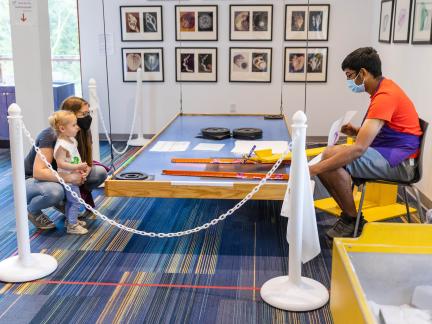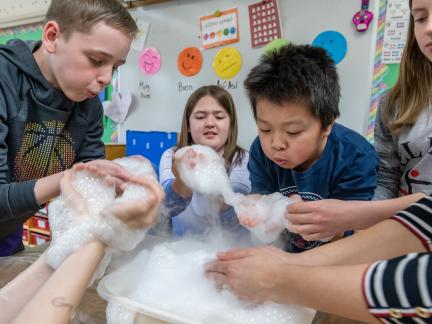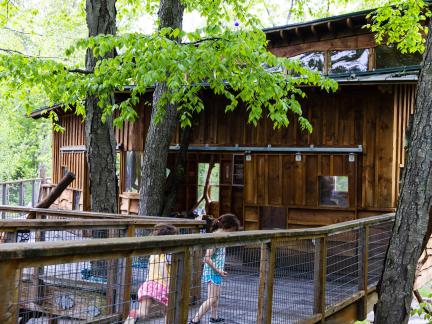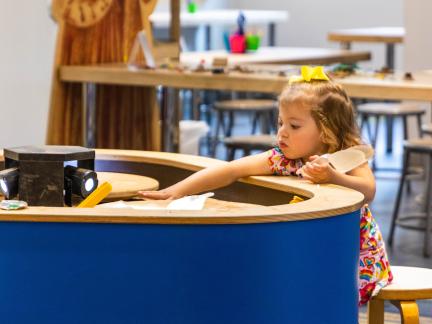Toward Accessibility
The Discovery Museums are a rich, joyful, and developmentally supportive experience for the kids who visit. But what about the kids who don’t visit?
We know that every kid can benefit from visiting museums, and therefore our goal is to make The Discovery Museums a welcoming and accessible destination for all kids. We identify and work to address financial, cultural, and developmental accessibility issues that might somehow create a barrier to visiting. We call this effort Open Door Connections and in its six years, the program has grown to encompass more than 45,000 people annually, representing 26% of our audience.
To be sure that we’re working to address the needs of audiences we are not expert in, we’ve established an Accessibility Advisory Council of professionals to guide us. Its members represent Autism Alliance of MetroWest, Boston Children’s Hospital’s Deaf and Hard of Hearing program, the Institute for Human Centered Design, Perkins School for the Blind, MA Association of Parents of the Visually Impaired (MAPVI), Nature Connection, Mad Pow technology design firm, and Kanics Inclusive Design Services. Expert users from the community round out this talented team, which meets regularly to assess and offer guidance on our exhibits, programs, building design, and more. We are deeply grateful to these volunteers.
Discovery Woods enables us to offer outdoor experiences for kids with special needs. It includes a beautiful, 550-square foot treehouse and an elevated trail with sensory and observation stations. The treehouse leverages a 15-foot grade change to provide an ADA-compliant ramping system such that every visitor can experience exciting new perspectives from high up among the trees. The surrounding natural playscape incorporates universal design principles that let all kids, regardless of ability, put their bodies ‘in play’ and experience a sense of adventure. The immersive, sensory-rich environment sparks kids’ imaginations; intertwining wheelchair-accessible paths, natural construction projects, an inclusive swing, and places to explore plants and animals provide something for everyone, regardless of ability.
A great museum visit begins with access to good information for planning your visit, and a way to follow-up to learn more afterwards. So, it is important that our website be accessible, both so that it is a resource useable by all, and to send a clear message that we welcome visitors of all abilities. Thanks to generous support from The Sudbury Foundation, we followed recommended accessibility guidelines to develop the new discoverymuseums.org to be a resource for all. Please let us know what you think.
We know we have a ways to go, but we are dedicated to arrive there. Have you noticed our efforts? Or have you spotted something we need to work on? In either case, I’d love to hear from you. Give us your feedback with a comment to this blog.





Comments
Add new comment